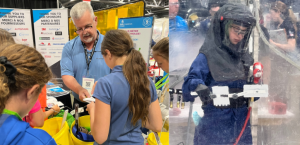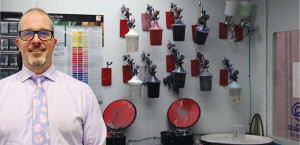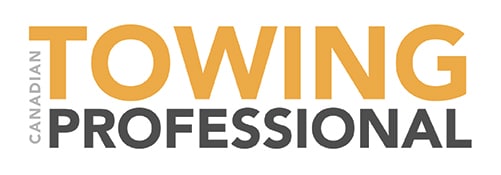In my experience...
BY BEN HART
I love this trade. Collision repair has treated me well from an eager apprentice, to a journeyman and now an instructor.
With that said, it hasn’t all been a fairy tale of ideology. I had a few rough years, made many mistakes and ventured down the wrong path at times. In some of these situations I had mentors who facilitated just enough slack for me to make mistakes and learn. In other situations, I did not, and fell flat on my face.
There are a few bad apples in the trade who not only refuse to mentor others, but also delight in their failure. Momentarily I was the metaphorical punching bag for a few of them. My skin is as thick as my determination, so I got back up and continued to repair vehicles to the best of my ability. I chose to fight back by continuing to learn and improve my skills. There were more failures along the way, but the path to success is rarely smooth.
When the time came, I happily guided my own apprentices towards the path of success and hoped their journey would be better than mine. “Learn from my mistakes,” I would say with encouragement and “don’t worry, there isn’t much you can mess up that I haven’t already. Sorry, you’re not that special.”
My first mentor in the collision industry was my grandfather, who patiently took the time to show the basics and teach me fundamental theories. Looking back, this was quite the task considering my inquisitive nature and poorly coordinated motor-skills. While my grandfather has long since passed, I am sure he would be proud to know that many of his teachings are alive in my classroom today.
From there I was thrown to the wolves in a shop with the old-school sink or swim mentality. While I was provided mentorship and guidance, it was not gentle. After some time proving myself, mutual respect was gained and my working-life vastly improved. After a few years there, I realized I needed to find a new employer who had the proper equipment and training to provide more suitable training for heavy collision repair. I left amicably and ventured to where the Journeyman technicians were much more willing to train. I was fortunate that I found this rare opportunity.
I successfully completed my apprenticeship, but that was not the end. As a young journeyman, I wanted to prove that I belonged in the big leagues. I decided to move up in the world again, but soon learned that the grass isn’t always greener—between trying too hard and moving to a toxic environment, the odds were not in my favour. I am sure I made a lasting impression with some of those individuals—and not one I am proud of—but I continued to learn! While I could easily blame others and insinuate my failures were no fault of my own, that certainly wasn’t true.
After some time, I reflected on the situation to learn what I could have done better when faced with a tough crowd. As the old saying goes, we aren’t victims, merely volunteers. I chose to put myself in that situation and stay there—shame on me. But looking further, I asked many questions and had to consider that shop management plays a role. Why would a manager or owner enable a toxic work environment? Why would someone not want to help someone else? Why does this trade allow some to succeed, while others flounder? I decided that it was time I become a part of the solution rather than let past experiences paint a grim outlook for the rest of my career.
I became involved with Apprenticeship and Industry Training, here in Alberta, and then moved into the role of a Post-Secondary instructor. While I may not be able to wave a magic wand and fix all the problems with the industry, I hope I can do more to improve it than disseminate negativity.
In my searches, I learned that there are some fallacies that exist. Anyone can be a mentor if they choose to. A mentor is one who assists, guides, advises, trains, tutors or coaches. A mentor can come from all walks of life and experiences. Mentorship is an attitude, not a right of seniority or experience.
As a journeyman technician, manager, owner, or any position for that matter, realize that learning can occur from any source; learning does not exist in a rigid hierarchical structure. Learn from your apprentices, detailers, estimators and administrative staff.
Then mutually reciprocate these exchanges. As an owner or manger, consider cross-training. Keep in mind that a good mentor is respectful, patient, empathetic and concise. One who focusses on the positive and offers encouragement. If you are an owner or technician, apprentice, manager, administrator, appraiser, adjuster, or involved in this industry in any way and you do not train others, focus on negativity or allow others to convey negativity, then you are a part of the very problem you complain about.
Last year was a tough year—for 2021 lets each make a goal to mentor at least one other person and get involved with at least one industry organization or initiative. A former employer used to say, “happy customers, happy staff and money to boot.” If you focus on quality and fostering a positive working environment, this will make profitability for all much easier. I have seen these positive effects work which is why I will end this similarly to how I started, by saying that I love this trade, can you love it too?
Ben Hart is a Red Seal certified autobody technician and refinisher with more than two decades of experience in the industry. For the past two years he has instructed apprenticeship programs at the Southern Alberta Institute of Technology. He can be reached at ben.hart@sait.ca.
















One Response
There is a lot of merit to what is written here, I share this sentiment.